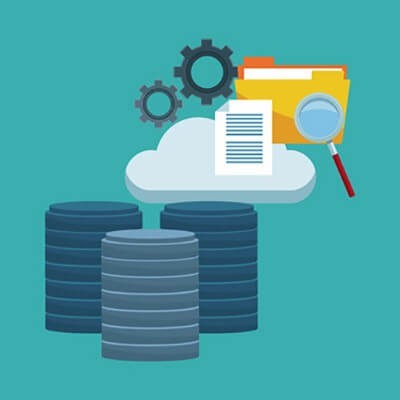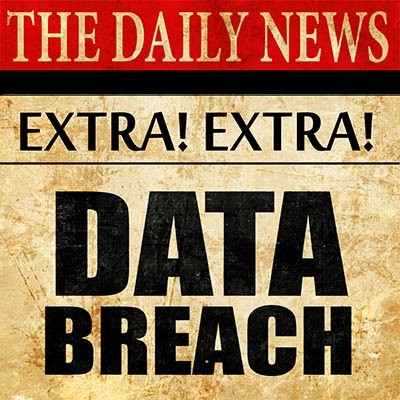When you have a thorough and powerful data backup strategy in place at your business, you are protecting your operations, your employees, and your customers from an array of terrible scenarios. Unfortunately, many businesses don’t think of data loss in the terms it should be considered in, a complete travesty. Today, we thought we would briefly describe the long and short of data backup and recovery practices that can put your business in a position to secure and restore your data should it be corrupted, destroyed, or stolen.
BEI Blog
People look at their work differently, just as they view their lives differently. The many different perspectives of your staff brings a bit of variance of how they view data security. This isn’t so good for your business as you need to trust them to prioritize the security of your data and infrastructure. Let’s take a look at some of the best practices that you should be training your staff in, which will allow them to protect your data better, and theirs.
A business’ data needs to be considered a priority, which means that its protection should be prioritized accordingly. One facet of doing so is maintaining a backup with a strategy in compliance to best practices. To accomplish this, your backup should feature something that isn’t often considered a benefit: redundancy.
If you are buying a new desktop or laptop, one of the specifications you might care about is how much data it can store. After all, your family computer needs plenty of storage for your photos and documents, and if you have kids, they’ll want to install games and other applications on it that fill up a hard drive. These days, however, it’s less about how much space your hard drive has and more about how fast it can run. Let’s explain this, and then talk about something you should almost always look for when picking a hard drive for your PC.
I want you to step out of your role as a business owner for a moment and see yourself once again as the average consumer. How concerned are you that so many businesses have collected and are now storing your personal data, and that you have no control over its privacy? If you feel at all uneasy, you’re not alone… 87 percent of Americans feel that data privacy is a human right in these modern times.
If asked to list its most valuable assets, every modern business currently in existence should include its data on that list. This is part of the reason that data security should be treated as a priority. We know—this isn’t exactly a small ask, so to help, we’ve put together a few tips to get you started off on the right foot. If you’re already working on your data security preparedness, consider this a refresher.
The late American author Kurt Vonnegut once wrote, “New knowledge is the most valuable commodity on earth. The more truth we have to work with, the richer we become.” Written in the 20th century, it has been put in practice by 21st century businesses. As the Internet has grown, the amount of companies expanded, and the amount of data that those companies collect has grown exponentially, especially now that there is a market for such data.
Data recovery is more a strategy than a solution. You first need to keep a regular backup to ensure that you aren’t losing large chunks of productivity. Then, you need to have a strategy to efficiently recover data if it is corrupted, lost, or stolen. Today, we’ll talk a little bit about some situations that businesses run into that would spark data recovery.
Your business’ data is a key component to its success, and with a managed service provider on your side, it becomes even more beneficial for you to put to use. As we carry on with our series describing the value of a relationship with a managed service provider, we’ll look at a few ways that your business can benefit from the data services that this relationship can provide.
The more successful your business is, the more files you have. These files need a storage facility. For decades, each file that needed to be kept would be printed off and stored in a file cabinet. Today, there are better solutions; and, since a lot of the work being done today is collaborative, file sharing has really moved to the digital age. Let’s help you do some things you need to do to maintain efficient file management systems.
As a business owner security should be of the utmost importance to you and your business. Adapting to the modern age means implementing different strategies to adapt to employee physical location, travelling employees, or even employees dealing with circumstantial dilemmas such as health problems or family matters. Whilst your business can experiment with different off-site methods, there should always be one constant: security.
Threats to data security are seemingly everywhere. Some companies spend millions of dollars a year on data security, but it only takes one unwitting user to tear down their huge investment. In fact, 2018 saw over 446.5 million records compromised, even if the number of data breaches dropped by almost 25 percent. Today, we will look at the biggest breaches that have happened from the beginning of May.
January 28th marked Data Privacy Day, a day intended to raise awareness of the importance of data privacy and educate users and business owners of its benefits. Spearheaded by the National Cyber Security Alliance, there are plenty of lessons the NCSA has to share with businesses as this day puts their, and their clients’, privacy in the spotlight.
The NCSA, in conjunction with the U.S. Small Business Administration, provides a few guidelines for businesses to follow in order to preserve privacy as far as company data and personal information are concerned.
Protecting Your Business
Nearly every business collects and utilizes personal information from its clients, employees, and vendors. Therefore, it is also the responsibility of the business to make sure that this data remains private and secure. In this digital age, businesses need to be transparent with their data privacy policies, as even the accusation of a data loss event or misusing their information in any way can be catastrophic. There should never be a time that a customer could accuse you of collecting more data than they consented to, without you having proof that they had been notified and provided their consent. A privacy policy should be available for you to provide to your clients.
However, this needs to be more than a policy. It needs to become a tangible part of your organization, and enforced as such. Not only should you frequently remind your employees of the importance of privacy and data security, it should become integral to your company culture. As the NCSA and the SBA say, you should “communicate clearly and often what privacy means to your organization,” as well as being sure to “educate employees about their role in privacy [and] security...”
Your diligence should extend not only to your internal employees but also to any external (or third party) resources you may use. You need to ensure any of your partners or vendors with access to your network and its sensitive data are taking your security as seriously as you are. Many businesses require all external resources to sign a network use agreement that holds them liable in the event their actions result in a breach of privacy.
Privacy in the Home
Data security does not just apply to work done within the walls of your offices, either. You need to cultivate an even greater awareness and respect for privacy at home or while traveling, as well. Any device that is used for work must be treated with the same security-minded processes that you and your employees would subscribe to in the office.
Remind members of your household that they need to be careful with their personal information as well. While they may not have a company to manage, there are still plenty of consequences to deal with if their data is breached. Therefore, the entire family needs to be mindful about what they share online, avoiding sharing too much and keeping personal details close to the chest. This is especially true if you have children and teens under your care and supervision, as they could face a lifetime of ramifications.
Additionally, BEI understands how important your privacy truly is. When you have built up and maintained a business, you want to protect it, and maintaining data privacy can help keep both it and you safe. We appreciate how big of a commitment it is to be entrusted with that responsibility, and we’d embrace the chance to live up to it with your data.
Please, lean on BEI for more assistance and advice. Call us today at (844) BIZ-EDGE.
There’s no denying the importance of data management for businesses, but companies that utilize cloud-based data storage and infrastructure access have to be extra aware. How can your business ensure that your data storage methods are working for you, and not against you? For this week’s tip, we’ll discuss some of the ways that businesses can best use their cloud-based data storage without compromising efficiency.
Identify Your Business’ Specific Needs
Businesses often implement a cloud solution without thinking about the options that are available. For example, you might make a spur of the moment decision to implement a solution thinking that it will offer great flexibility and dynamic access to your business’ data, and in the heat of the moment, you’ll forget how important security is. While this is true, you’re foregoing a major step in the implementation process--research and consultation. The best way to implement a cloud solution is to make sure that you’re getting the solution that best suits your business’ needs.
That being said, there are three major types of cloud solutions that your business will be choosing from. The public cloud allows small businesses to take advantage of the cloud on a limited budget, but often falls short in terms of customized service and network security. On the other hand, a private cloud is hosted in-house and is tailor-made to suit the needs of your organization, security and all. Finally, the hybrid cloud is a melding of the two, allowing for maximum customization and flexibility without the need to sacrifice security.
Ensure Your Data Is Organized
The important thing to remember about cloud-based data is that you’re essentially moving data from one location to another over the Internet. Therefore, it makes sense that you want your data to be organized so that the process goes as planned. When your data is organized, applications and other components that communicate with your cloud work much better, so it’s critical to keep this particular tip in mind.
Of course, you can also think of cloud-based data storage and integration as a second chance to improve the way that your business functions. Look for ways that your business can optimize data storage and organization, or ways that your data storage has been lacking until now. It’s a great opportunity to assess what mistakes you have made in the past and take steps toward resolving them for your future infrastructure needs.
Determine the Migration Process
Depending on your business’ needs, you’ll have to determine which data, and how much of it, will be migrated to the cloud. You’ll need to determine just how much interaction there will be between your business’ applications and cloud storage, as well as what you’re using this data for. There are all kinds of uses for cloud data--it’s just a matter of figuring out how best your business can take advantage of it.
If you don’t know which information your business needs to focus on, BEI can help. We’ll not only help you implement a cloud solution but ensure that you know how it’s contributing to your business’ success. To learn more, reach out to us at (844) BIZ-EDGE.

















